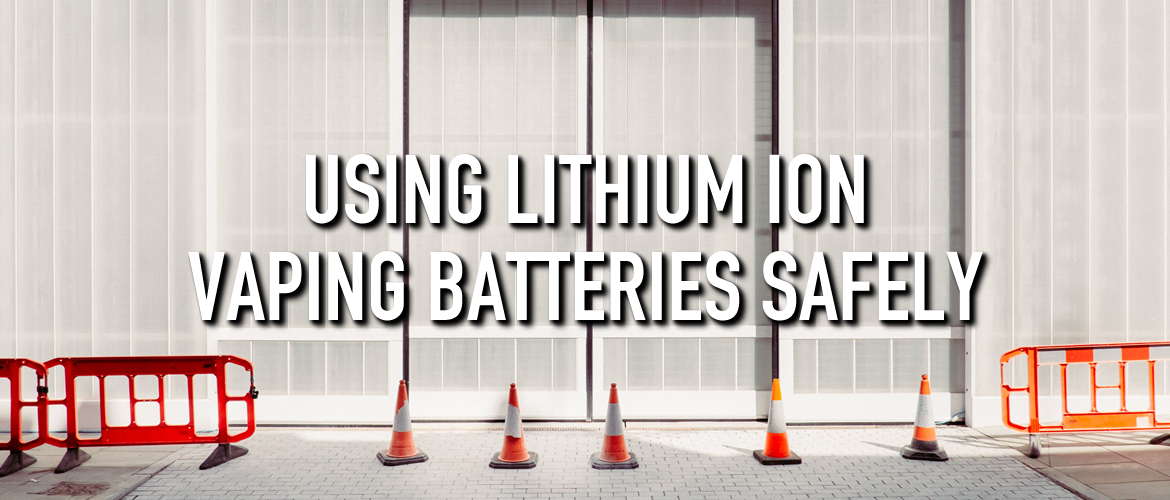The CDC have now released their conclusive evidence in a paper published by the New England Medical Journal that the outbreak of vaping related illness in the US was caused by THC e-liquids cut with vitamin E acetate and are not the result of vaping regular nicotine containing e-liquids.
THC is the psychoactive element found in cannabis; both cannabis and THC are illegal in the UK and vaping products containing THC are not available for legitimate purchase in any vaping stores.
The results
The CDC carried out tests on the bronchoalveolar-lavage (BAL) fluid, a fluid from the lungs, of 51 patients treated for vaping related illness; vitamin E acetate was found in the fluid of 48 of those tested. They have concluded that the vitamin E oil was used to cut THC for use in e-liquids and this thick substance, which has a similar consistency to honey, is responsible for the onset of illness as it quickly builds up in the lungs.
When inhaled as a vapour, vitamin E acetate undertakes a chemical change that can disrupt the surfactant on the lining of the lungs , which can prohibit their ability to expand effectively. There is also a by-product which may be released called ketene, which can cause chemical injury to the lung.
Unfortunately, their job was made somewhat harder as 11 of the patients whose BAL fluid was tested denied using THC, however 9 of them had THC present in their lung fluid. They have identified that the three patients who did not have vitamin E acetate present were likely suffering from misdiagnosed lung injury.
Where did the vitamin E acetate come from?
Although there has been an illicit market for illegal THC e-liquids in the US for some time now, the cases of vaping related illness happened in rapid succession, with 2500 people being affected across 16 states, peaking in September 2019. This sudden outbreak baffled many, as it did not speak to the slow onset of long-term risk factors, and from day one it was obvious that there must be more to the story than just vaping.
The CDC report explains that in Minnesota, a state in which cannabis and THC products are not legal, no THC containing products seized by law enforcement in 2018 contained vitamin E acetate.
However, products seized throughout 2019 showed that vitamin E oil was being used as a cutting agent in THC products with more and more frequency. Unfortunately, the rise in use of this substance has resulted in the many cases of illness, as the illicit products hit the black market and spread throughout the US states.
The US FDA and DEA have announced that they have now seized 44 websites which were advertising illicit vape cartridges and e-liquids containing THC for sale. By seizing these websites they are hoping to interrupt the sale of these dangerous products and prevent future cases of illness.
E-cigarettes are still less harmful than smoking
This research means that these incidents can finally be put to rest, and the vaping community as a whole can rest easy in the knowledge that by using e-cigarettes in the manner they are intended, as a stop smoking aid, they are taking steps to improve their general health and are not putting themselves at risk.
E-cigarettes and e-liquids are still a far less harmful alternative to smoking and hopefully the conclusions of the CDCs research will mean that people do not let the outbreak deter them from continuing on their stop smoking journey or dissuade them from making the switch from smoking to vaping.
Professor Jacob George at the University of Dundee, said:
“The lung injury seen in the US is not related to the nicotine replacement e-cigarette devices sold in UK high streets… The key message is that the comparative risks of tobacco cigarettes … are still significantly higher than e-cigarettes. Non-smokers should not try e-cigarettes but tobacco smokers could switch to e-cigarettes as a harm reduction measure.”
Professor Pete Hajek, Director of the Tobacco Dependence Research UNit at Queen Mary University London, has weighed in on his hopes that the findings will end the confusing misinformation in the media;
"The new findings provide further robust confirmation that EVALI is caused by contaminants in illegal THC (cannabis) cartridges... anti-vaping fear mongering should now be put to rest."
























